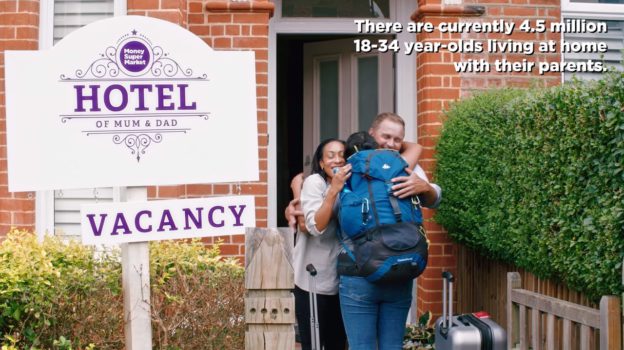MoneySupermarket approached me for their Hotel of Mum and Dad campaign about the question of why it’s so difficult for young people to buy a house today. There are many proximate-level economic and social factors to answer this question, but an ultimate-level explanation lies in an extension of our juvenile period – a process that’s been occurring since we became human. The research on this is summarized under the Cultural Brain Hypothesis and Collective Brain. A discussion on Sky News and a copy of the article below:
Sky News interview where I discuss the trend of adults moving back home with their parents and how this links to the Cultural Brain Hypothesis, collective brain, and ever extending juvenile periods.
As parents, we might summarise our role as the three Ps: To Protect, to Provide, and to Prepare. But when our children face an ever-changing, more complex and more challenging world than we faced, how do we prepare our children so that they can provide for and protect themselves? And what happens when life happens, and they need to return home?
There is a trend of adult children moving back in with their parents to save money, at the expense of their privacy and independence.
At an individual level, these decisions are often made with changing life circumstances – health, divorce, losing a job, increases in rent, conflict with flatmates and so on. But there are often broader societal trends underlying these decisions.
The first is a long term trend that has affected humans since the beginning of our species – what scientists call our ‘extended juvenile period’.
Every profession now has to deal with new technologies and more complex systems. This has resulted in us spending more time in education, particularly on-the-job education (e.g. internships, junior roles and lower paid apprenticeships), meaning it now takes more time before we’re earning enough to support a family, buy a house and become self-sufficient.
It used to be that a high school diploma was enough to make a good living. Then it took a university degree or a short apprenticeship. Now it requires post-graduate degrees, internships and volunteer work – which can be unpaid – as well as on-the-job training.
This has meant that the age of first birth, the age of owning a home and the age of financial independence have been steadily rising. As a result, when the last two generations did finally leave home, they often found themselves needing to return, especially if they were unable to share costs with a partner or group of friends.
The second trend is more recent. Economic growth has slowed, yet wealth and income inequality has risen. In combination, this means there’s less to go around per person and of what is there, a greater share has gone to the top end of society.
This means it’s becoming more difficult for people to purchase a home and become self-sufficient than it was for their parents, or even those born a couple of decades earlier.
These are real problems with not-so-simple solutions.
However, it can be hard to see an adult child return home in less than ideal circumstances, especially after two decades of interrupted sleep, changing nappies, helping with homework, giving them lifts from event to event, dealing with the ups and downs of friendships and first romantic relationships, and celebrating the joys, achievements, graduations and first jobs.
For children too, this is often not a preferred situation. They are trading their independence and privacy for financial savings and perhaps some home cooking and laundry.
There are no one-size-fits-all solutions on how to handle the new situation, but it may be worth noting a few things in moving toward a more open discussion:
- Emotions such as pride and sense of self-worth are affected on both sides – A child in their ability to handle the world as their parents did, and a parent in whether they properly prepared their children for the world. These may lead to important discussions, but it’s important to remember that the world is more competitive for young adults than ever before.
- Different societies and different cultures have different expectations for independence – In many so-called WEIRD (Western Educated Industrialised Rich Democratic) societies, young adults are expected to live alone or apart from their parents. However, in many other societies, unmarried children live with their respective parents until marriage and then married couples live with or near their husband (patrilocal) or wife’s (matrilocal) parents. It may be that our society is moving toward these other norms.
- There are pros and cons for both parents and children that vary from family to family, and circumstances outside of the family also affect emotions and mental health – In discussing how long the arrangement will last and how to keep both parties happy, it’s worth remembering the costs and benefits to both parties. On both sides, this can come in the form of increased support at home, the joy of being closer to loved ones and perhaps access to grandchildren, versus the loss of privacy, increased workload, reduced living space and financial costs. An honest conversation can help prevent problems from surfacing in less ideal ways.
Thankfully, many parents have been willing to help their children reduce their expenses by moving back home – even though research has shown the tensions over how much children should be contributing in rent and expenses, and the mismatch in expectations between parents and children.
Hopefully, even if the returns to parents aren’t immediately monetary, they find that their children do eventually become financially self-sufficient and perhaps return the favour as they grow older.








